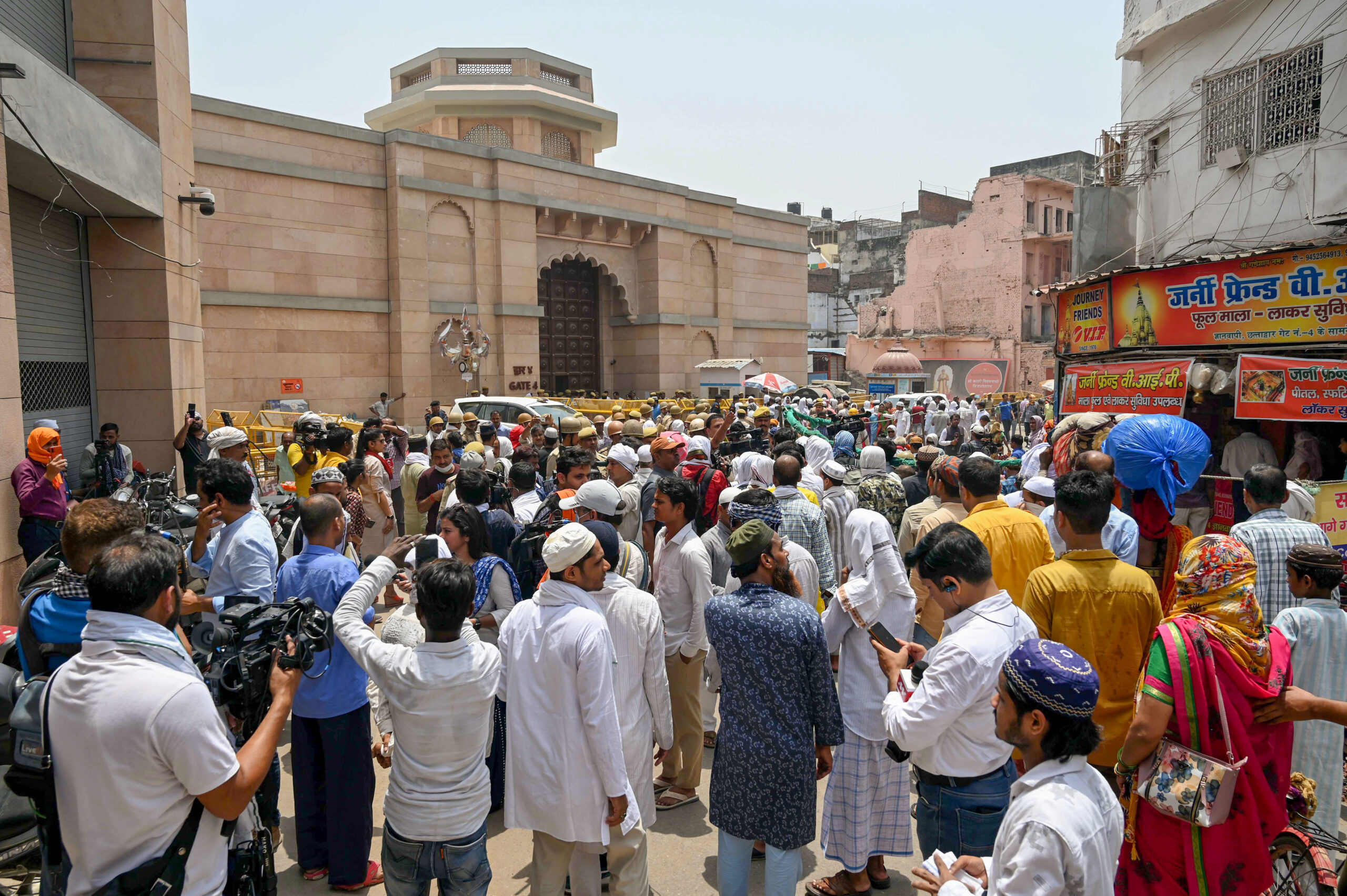
New Delhi, May 20
The Supreme Court on Friday handed over the trial of the suit for permission to worship Hindu deities inside the Gyanvapi mosque complex to the Varanasi District Judge, saying it needed to be handled by a “slightly more experienced and seasoned” officer from the UP higher judicial service.
Till then, the interim order passed by the top court on May 17 for protection of area where a court-mandated survey panel found a “Shivling” and allowing free access to Muslims to offer namaz in the mosque should continue, a three-judge Bench led by Justice DY Chandrachud said.
The Bench, however, refused to interfere with the Gyanvapi survey report.
The Supreme Court said its interim order would remain in force for eight weeks after the District Judge decides the issue of maintainability of the suit filed by Hindu parties so as to allow aggrieved parties to challenge the decision.
The case was being heard by Varanasi Civil Judge (Senior Division) Ravi Kumar Diwakar. But after Friday’s top court order, the Varanasi District Judge will decide if the suit filed by the Hindu side was maintainable. The Bench directed the Varanasi District Magistrate to make arrangements for “wazookhana” (place for ritual washing) for the Muslims going there to offer namaz.
The Bench, which also included Justice Surya Kant and Justice PS Narasimha, posted the matter for further hearing in July after summer vacation. After a court-mandated videography of the Gyanvapi complex discovered a Shivling on its premises, Diwakar had on Monday ordered the place to be sealed. He had ordered the Varanasi District Magistrate to seal the area where the Shivling was found. It had ordered the District Magistrate, Police Commissioner and the Central Reserve Police Force to ensure that the sealed area remained safe and secure.
The Supreme Court had on Tuesday ordered protection of the area where the Shivling was reported to have been found at the Gyanvapi mosque-Shringar Gauri complex in Varanasi and clarified that there should be no restriction on Muslims offering namaz or other religious observances there.
The top court had made it clear that the trial judge’s order that only 20 people would offer namaz at the disputed complex would not operate now.
The order had come on a petition filed by the Committee of Management of Anjuman Intezamia Masjid challenging the Allahabad High Court’s order permitting a local court-appointed commissioner to inspect, conduct survey and video-graph the Gyanvapi complex. The management’s counsel Huzefa Ahmadi on Friday repeated his submission that the Gyanvapi mosque was covered under the Places of Worship (Special Provisions) Act, 1991. As he said wazookhana was not being allowed to be used, senior advocate CS Vaidyanathan, representing a Hindu party, said desecration of the place where the Shivling was found couldn’t be allowed.
Ascertainment of the religious character of the place is not barred by the Act, Justice Chandrachud noted. At some level, the trial judge’s decision to go for a survey to determine the religious character may not fall foul of the Act, he said.
Discussions
Discussions